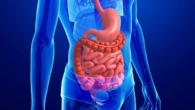
Fatty liver disease affects the brain: 2 signs possible in thinking
0
High levels of fat in the liver are associated with an increased risk of other health problems, including problems with brain function and thinking.
Fatty liver disease usually develops in people who are overweight or obese, have diabetes, or have high levels of cholesterol or triglycerides in their blood. According to the American Liver Foundation, if more than 5-10 percent of its weight is fat, then doctors speak of the formation of a fatty liver.
“Usually non-alcoholic fatty liver disease (NAFLD), including non-alcoholic steatohepatitis (NASH). is an asymptomatic disease with few outwardly visible signs. In some cases, there are no symptoms, even if cirrhosis develops,” experts said.
In turn, doctors from the British Liver Trust (British Liver Trust) report that in those cases when the symptoms of a fatty liver do appear, a person may feel severe fatigue or discomfort in the upper right part of the abdomen. In addition, fatty liver disease affects the brain, and some signs of the problem can be reflected in the features of thinking.
“There are some signs that indicate that people with a diseased liver should seek medical help. These include periods of confusion or poor memory, known as encephalopathy.
Experts will explain that encephalopathy is the term for any diffuse brain disease that changes the function or structure of the brain. A person may lose the ability to maintain adequate language communication, feels prostration, does not orient himself in the environment.
Other symptoms. Fatty liver disease may be manifested by dark, black tarry stools, dark urine, also possible vomiting with blood, easy bruising, itching of the skin, swelling in the lower abdomen, weight loss, yellowing of the skin or eyes, the appearance of vascular “stars” on the skin.









Leave a Reply